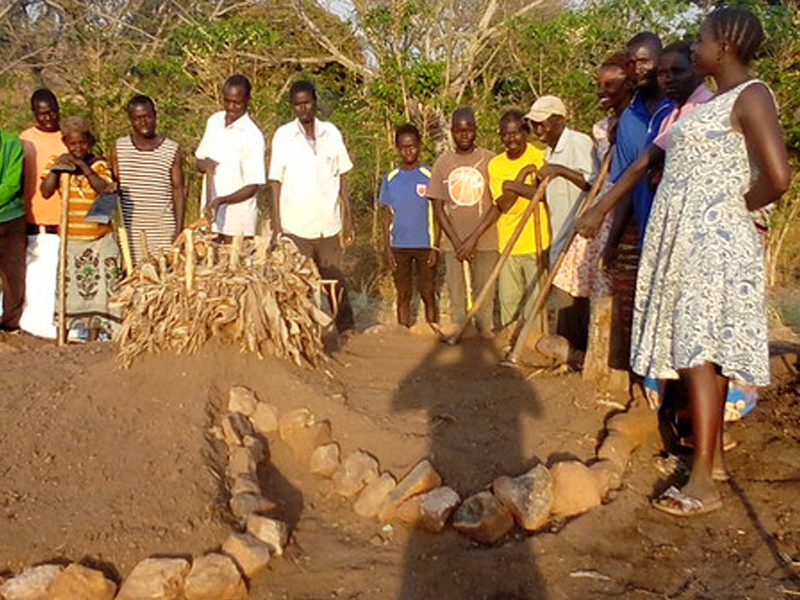
This project aims to increase the food security and income of smallholder farmers in the rural Zombo District in Uganda. In this region, more than 90 percent of residents depend on small-scale agriculture for their livelihoods; a majority of these farmers are women who rely on agricultural production to feed their families and earn income by selling crops at local markets. Land degradation, poor soil health, and high dependence on rain-fed agriculture have increased the vulnerability of rural households to food insecurity and poverty. The impacts of COVID-19 and climate change have exacerbated food insecurity, necessitating an urgent intervention to improve families’ livelihoods.
This project with longtime BGR partner Oxfam America will train 150 smallholder women farmers in water harvesting and agronomic climate-smart practices. The farmers will receive seeds and supplies as well as training to enhance their income-earning abilities. An estimated 900 family members will benefit as the women’s food and cash-crop production increases.

This project aims to increase the food security and income of smallholder farmers in the rural Zombo District in Uganda. In this region, more than 90 percent of residents depend on small-scale agriculture for their livelihoods; a majority of these farmers are women who rely on agricultural production to feed their families and earn income by selling crops at local markets. Land degradation, poor soil health, and high dependence on rain-fed agriculture have increased the vulnerability of rural households to food insecurity and poverty. The impacts of COVID-19 and climate change have exacerbated food insecurity, necessitating an urgent intervention to improve families’ livelihoods.
This project with longtime BGR partner Oxfam America will train 150 smallholder women farmers in water harvesting and agronomic climate-smart practices. The farmers will receive seeds and supplies as well as training to enhance their income-earning abilities. An estimated 900 family members will benefit as the women’s food and cash-crop production increases.




